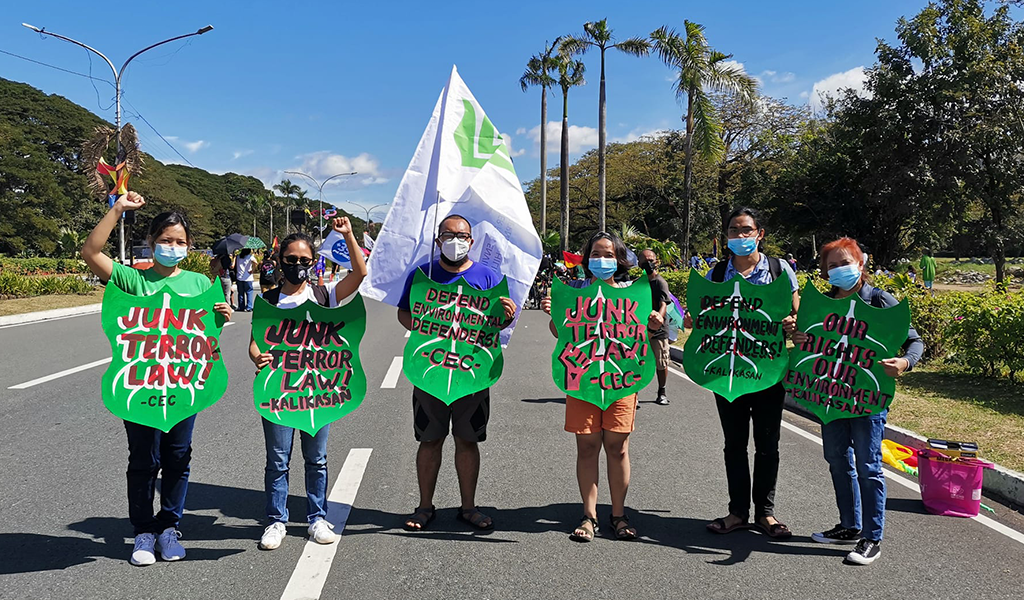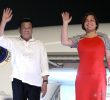
DAVAO CITY, Philippines – The Philippine government is participating in the United Nations Framework Convention on Climate Change (UNFCCC) Conference of Parties 28 (COP28) in Dubai this week as world leaders discuss measures to curb global warming.
President Ferdinand Marcos Jr has announced at the last minute that he is skipping the event to attend to the hostage-taking of 17 Filipino seafarers in the Red Sea, and has delegated environment secretary Antonia Yulo-Loyzaga to lead the Philippine delegation and carry their statements.
Still, environmental groups issued a challenge to the Philippine government to address a particular concern of Philippine environmentalists.
The Center for Environmental Concerns (CEC), which is one of the Philippine civil society groups attending COP28, urges the government to address the attacks on environmental defenders.
There have been 38 land and environmental defenders who have either been killed, disappeared, or abducted under Marcos Jr’s administration since June 2022, according to the Kalikasan Network which includes CEC.
“We urge the Marcos Jr. administration to make a commitment on recognizing, and protecting, the rights of environmental defenders here at COP28,” said Lia Mai Torres, executive director of CEC. “If President Marcos Jr. is truly serious about being a climate advocate and leader, defending our environment defenders must be a priority of the administration.”
UN Rapporteur’s recommendation
Prior to this event, environmental and indigenous people’s groups found an ally in the UN Special Rapporteur for Climate Change Ian Fry, who made a 10-day official visit to the Philippines that probed the attacks of environment defenders.
Fry came out with recommendations to the Philippine government to abolish the government’s National Task Force to End Local Communist Armed Conflict (NTF-ELCAC), which he said has gone beyond its mandate to combat the insurgency.
“It is evident that the NTF-ELCAC is using its powers to protect key economic interests in the country. This has nothing to do with anti-terrorism or anti-communism. The military’s gross overreaction to people trying to defend their right to a safe, clean health and sustainable environment is totally unacceptable. The NTF-ELCAC should be disbanded,” Fry said in his report of his visit last November 15 in the UN House in Mandaluyong.
Fry had several dialogues with environment and land defenders and indigenous groups, including representatives from the Tumandok tribe whose leaders were either killed or detained in their struggle against the Jalaur Mega Dam project in Panay.
The rapporteur also recommended the repeal of the Anti-Terrorism Act (ATA) who found it “unreasonable” that indigenous leaders and their advocates from church and humanitarian groups were designated as terrorists and their bank accounts put on hold.
In light of these recommendations, two terror charges filed against youth activists have been dismissed by government prosecutors for lack of evidence, while four Cordillera activists challenged in court in Baguio the terrorist designation tagged against them.
The NTF-ELCAC and the ATA were formed during the Duterte administration and have been criticized by human rights groups as draconic measures that attacked human rights defenders.
Environmental defenders killed during Duterte’s administration reached 205 from 2016 to 2022, according to human rights group Karapatan.
The indigenous group Katribu said the UN expert gave hope to groups “who have been silenced and attacked in the fight for our rights to land, self-determination, and genuine development.”
Sandugo Movement of Moro and Indigenous Peoples for Self-Determination said that Marcos Jr’s administration should heed the rapporteur’s recommendations.
“We encourage the government to stop the red-tagging, militarization and bombings of our communities. Release political detainees and stop the tagging of indigenous peoples and environmental rights defenders as terrorists. Disband NTF-ELCC and junk the ATL,” said Eufemia Cullamat, council member of Sandugo and a former representative of Bayan Muna Party-list.
Sidelined
Environmental groups attending the COP28, though, observed that civil society groups are sidelined in the Philippine delegation’s activities, including a pavilion hosting for the country’s climate change programs.
They still hope the delegation can engage with them on the issues of protecting environment defenders and on programs that would address climate change that has gravely affected communities in the country. (davaotoday.com)
COP28, environment, Human Rights, philippines, United Nations









